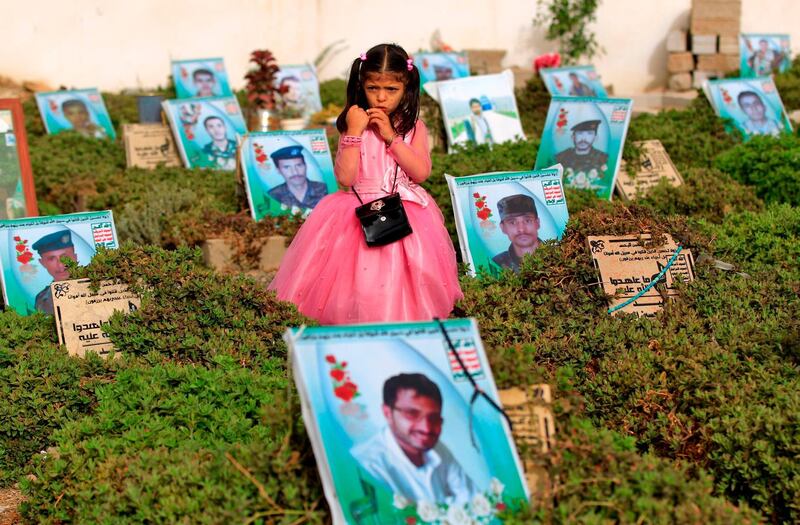"There is no military solution to the conflict," says the UN special envoy to Yemen, Martin Griffiths. Iranian officials agree, at least in public, yet Tehran keeps sending weapons to the Houthi rebels, including ballistic missiles. Arming the rebels makes perfect sense when Iran does not want to resolve the conflict. Rather, it wants to perpetuate a war that ties down its adversaries, both financially and militarily, while shouldering only limited costs.
Iran's support to the Houthis is consistent with two pillars of its regional security policy, the first of which is taking the fight abroad to avoid fighting at home. If Saudi Arabia remains mired in a war on its own doorstep, it might be less capable and therefore less inclined to challenge Iran head-on with its conventional forces.
The second pillar is to rely on Iran’s asymmetric strengths, especially its ability to train or equip proxies who can fight wars and infiltrate governments on Tehran’s behalf. In Syria, Iran has dispatched Afghan, Pakistani and Arab Shiites to fight and die for Bashar Al Assad’s vicious dictatorship.
Further west in Lebanon, Iran has spent almost four decades politically, economically, and militarily supporting Hezbollah, which now dominates the country and threatens Israel with its large and growing missile and rocket arsenal.
In Yemen, Iran is perfecting this strategy with a much lighter footprint and with a comparatively lower cost. Rather than create a militia, Iran is co-opting and supporting local Houthi forces, who have their own grievances with Saudi Arabia as well as the Yemeni state.
Tehran has provided the Houthis with rifles and other field weapons, anti-tank missiles and even a modified short-range ballistic missile called the Burkan-2H – also known by its Iranian name, the Qiam-1 – that has permitted the Houthis to strike the Saudi capital Riyadh, that lies several hundred miles from the Yemeni border. Few in the West appreciate that the Yemeni war enables the regime in Tehran to injure and kill Saudi civilians while its own elites remain secure.
This bring us to the current battle for the deep-water port of Hodeidah located on Yemen's Red Sea coast. Hodeidah is the main lifeline for humanitarian aid such as medicine, food and clean drinking water for Yemeni citizens trapped in Houthi-controlled territory.
Part of the reason for this assault is the Arab coalition's desire to reclaim this port city as a way to stem the flow of Iranian arms into Yemen, in accordance with multiple intelligence assessments. However, the UN has also pointed out that Hodeidah is not necessarily the most likely gateway for Tehran's weapons.
According to a UN panel of experts report from earlier this year, the “most likely” missile-smuggling routes are overland via Oman or through Mahrah governorate in eastern Yemen. The UN panel asserts that it is “possible” that only hidden “non-explosive weapons in component form” could come through Hodeidah.
Capturing Hodeidah, however,also aims to cut off a major source of revenue to the Houthis in a bid to drive them to the negotiating table. Not only do the Houthis generate a profit through customs duties from ports but according to the aforementioned UN panel report, they are also involved in lucrative black market sales.
From May 2016 to July last year, the Houthis potentially earned up to $1.3 billion dollars from black market oil smuggling through two ports, one of which was Hodeidah. Media reporting has also presented concerns about Houthi obstruction and re-routing of humanitarian aid.
Over the course of the next few weeks, criticism of the coalition will likely reach an apogee over the predictable humanitarian fallout from the battle in Hodeidah - a matter that the coalition is both aware of and trying to mitigate against. Thus far, the Houthis and their Iranian backers have avoided bearing the brunt of public scrutiny, despite their determination to prolong the war.
Yet whatever the outcome of the battle for Hodeidah, one thing is certain. Iran and its partners in crime remain willing to sacrifice the welfare of ordinary Yemenis in order to keep the conflict raging and pursue their ideological aims.
Behnam Ben Taleblu is a research fellow focusing on Iran at the Foundation for Defence of Democracies in Washington, DC





